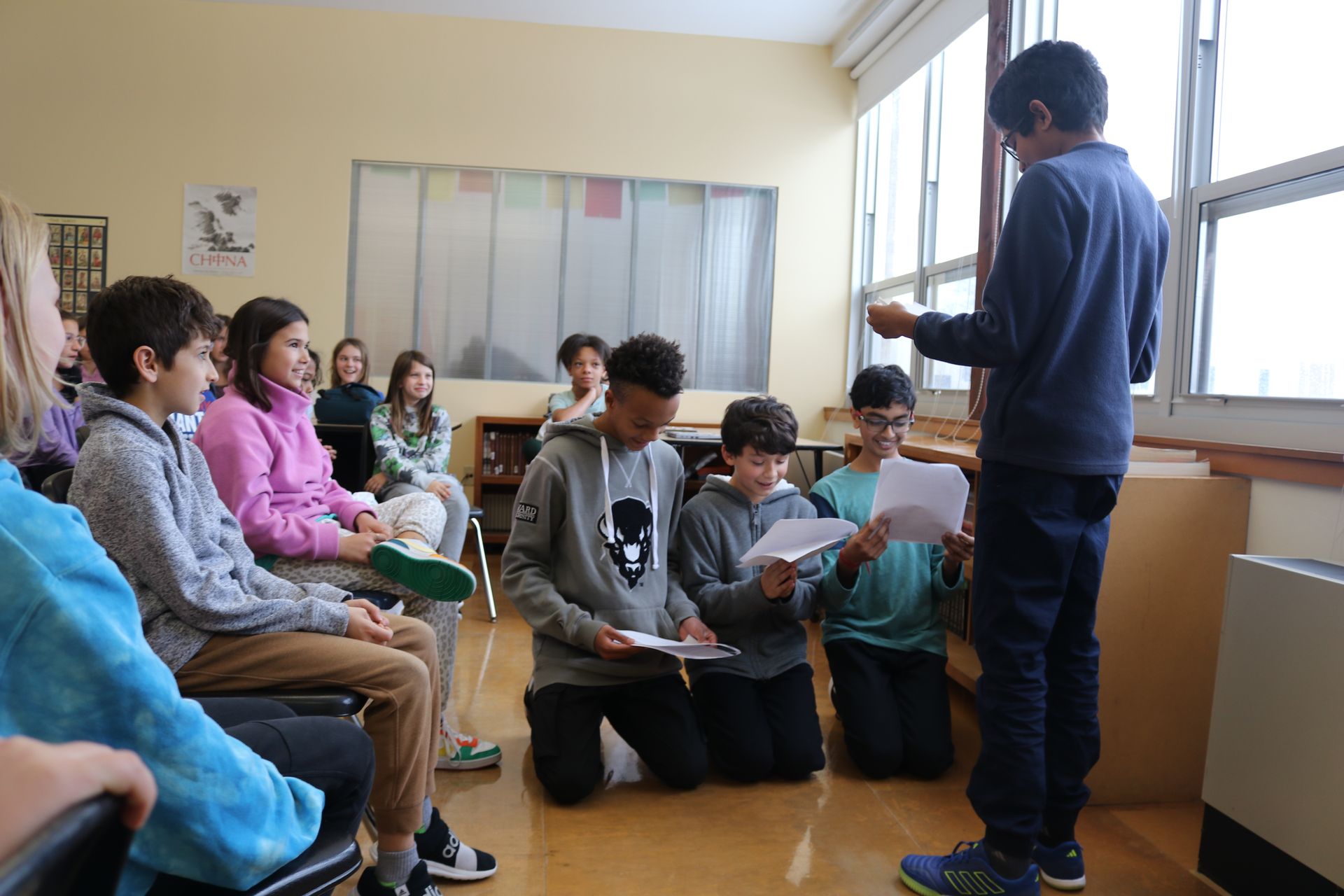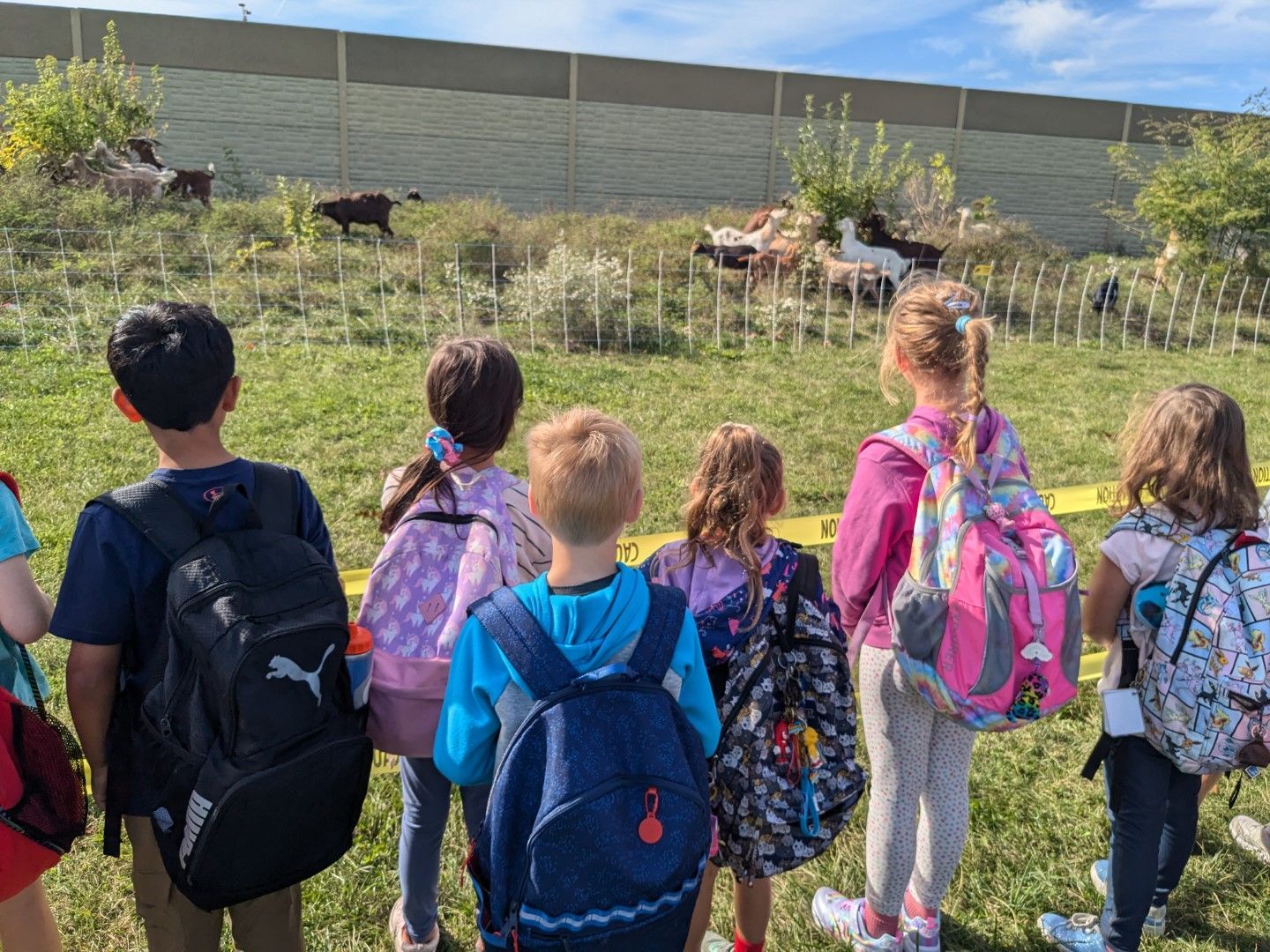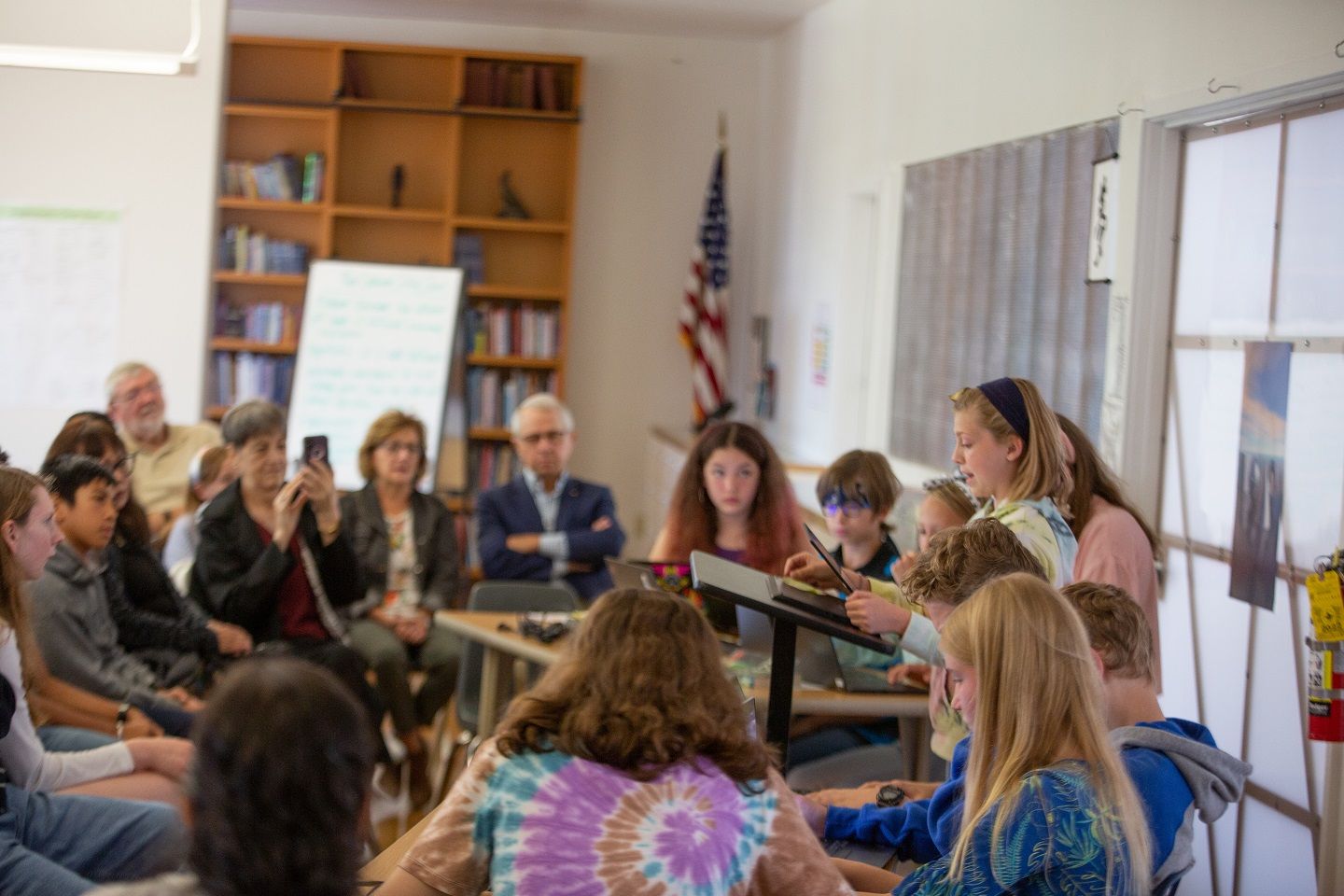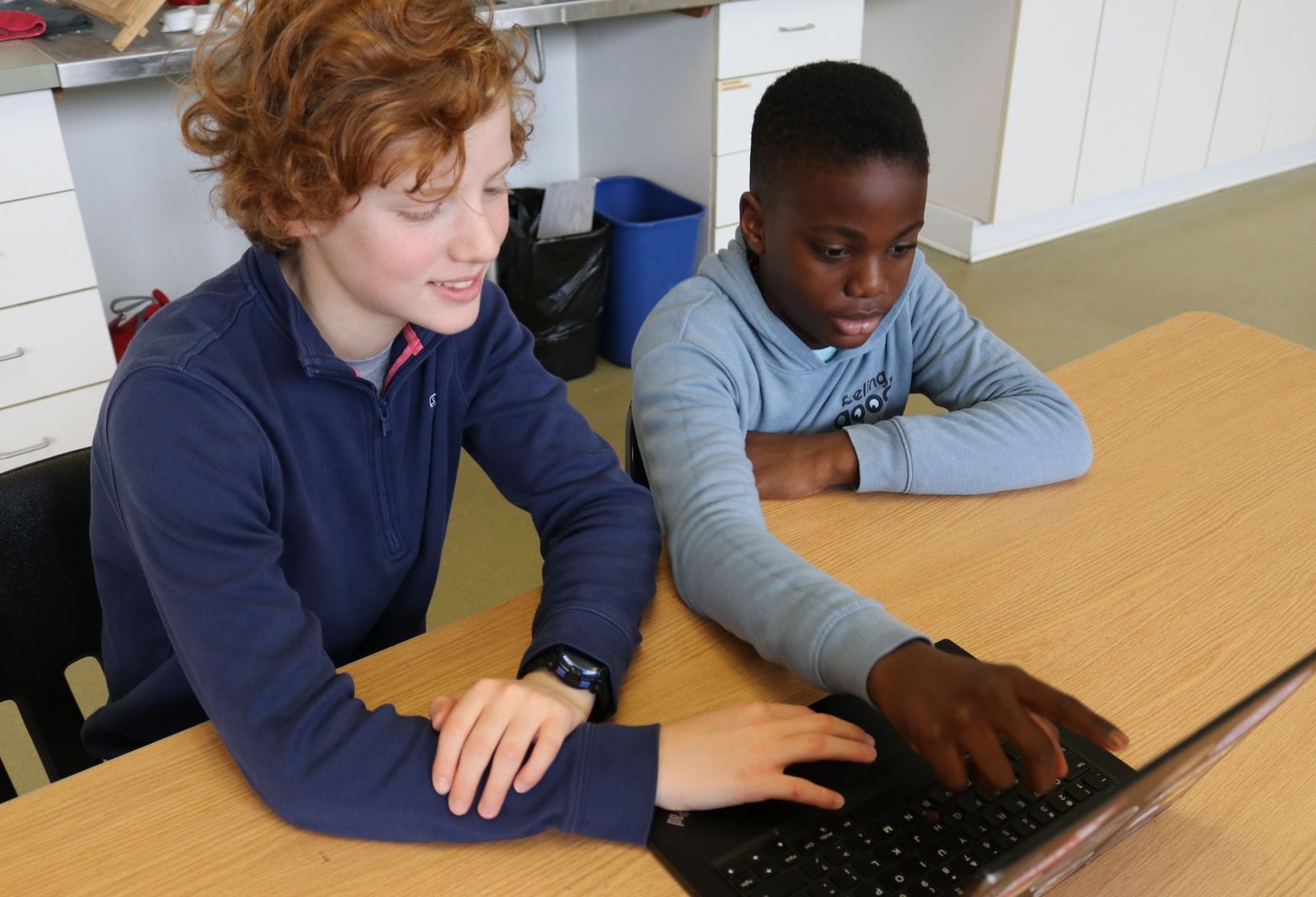Ice Storm 2024 Student Drone Racing
New Paragraph

Gracie and Sargun, making sure this drone will cruise!
Ice Storm 2024 Student Drone Racing
The pulse-pounding excitement of our student Ice Storm Drone Racing Competition at the Pettit Center last weekend was an electrifying spectacle to behold! With six fiercely competitive teams from Carroll University, Fox River Middle School, and MMS vying for victory, the atmosphere was charged with anticipation.
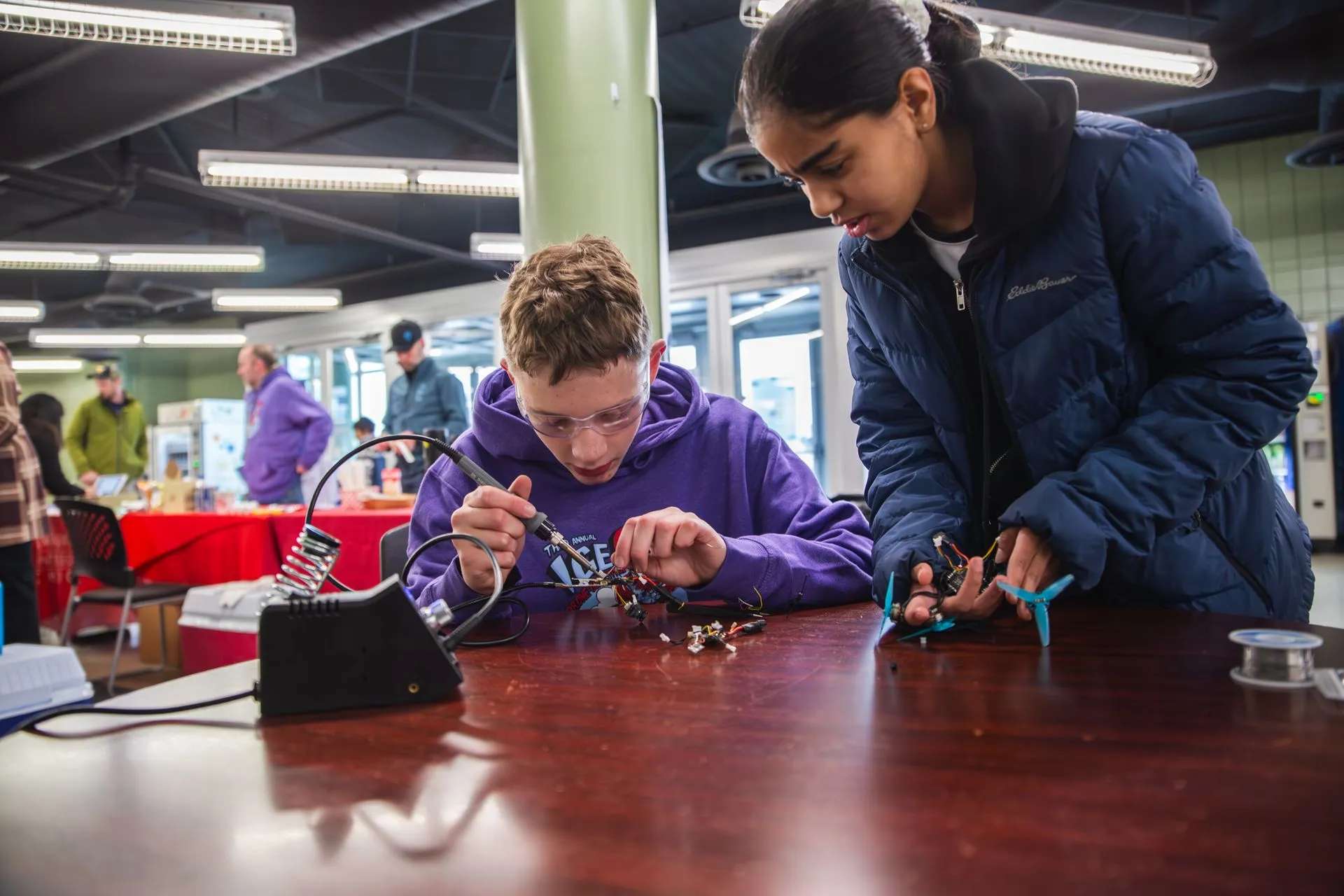
Fueling the excitement was our race production powerhouse, MultiGP, fresh off the heels of their thrilling event in Sharjah. Their expertise in crafting intricate courses tailored to our students' hand-built drones elevated the competition to new heights, setting the stage for an epic showdown.
In the early hours of the morning, teams meticulously prepared their drones, ensuring every soldering point was secure and every component finely tuned. The importance of building the drones from scratch became evident as the races progressed, with crashes and rapid repairs putting the skills of the Pit Crew to the test.
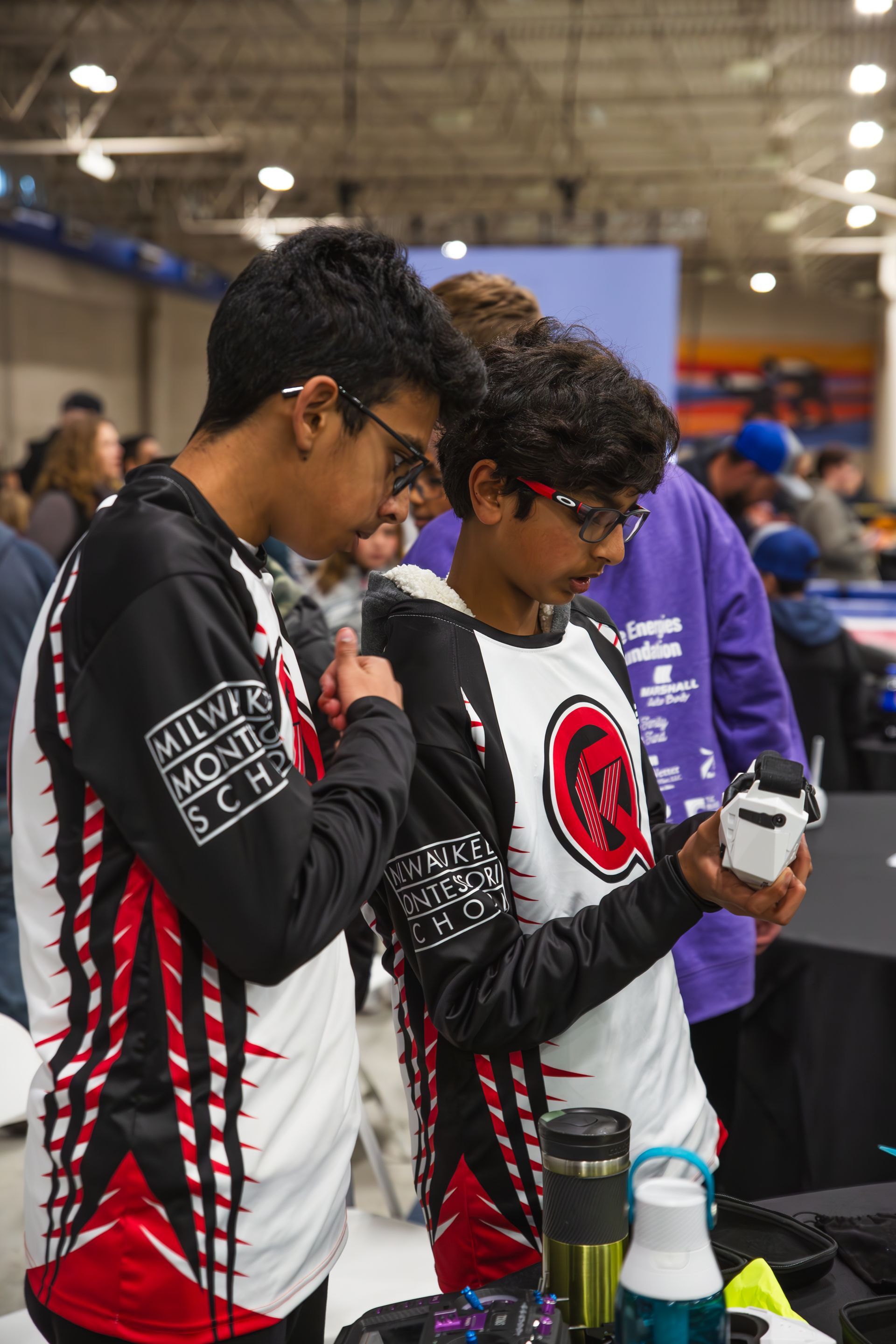
Guided by MultiGP, teams were briefed on the course intricacies and race regulations, with dedicated pilots, spotters, and pit crews standing by to ensure seamless operation. With each heat of the race demanding split-second decisions and lightning-fast reflexes, students were pushed to their limits as they navigated through gates and executed precision maneuvers.

Slide title
MultiGP Founder Chris Thomas explains course rules to Tanav, Elijah, and Aayan.
Button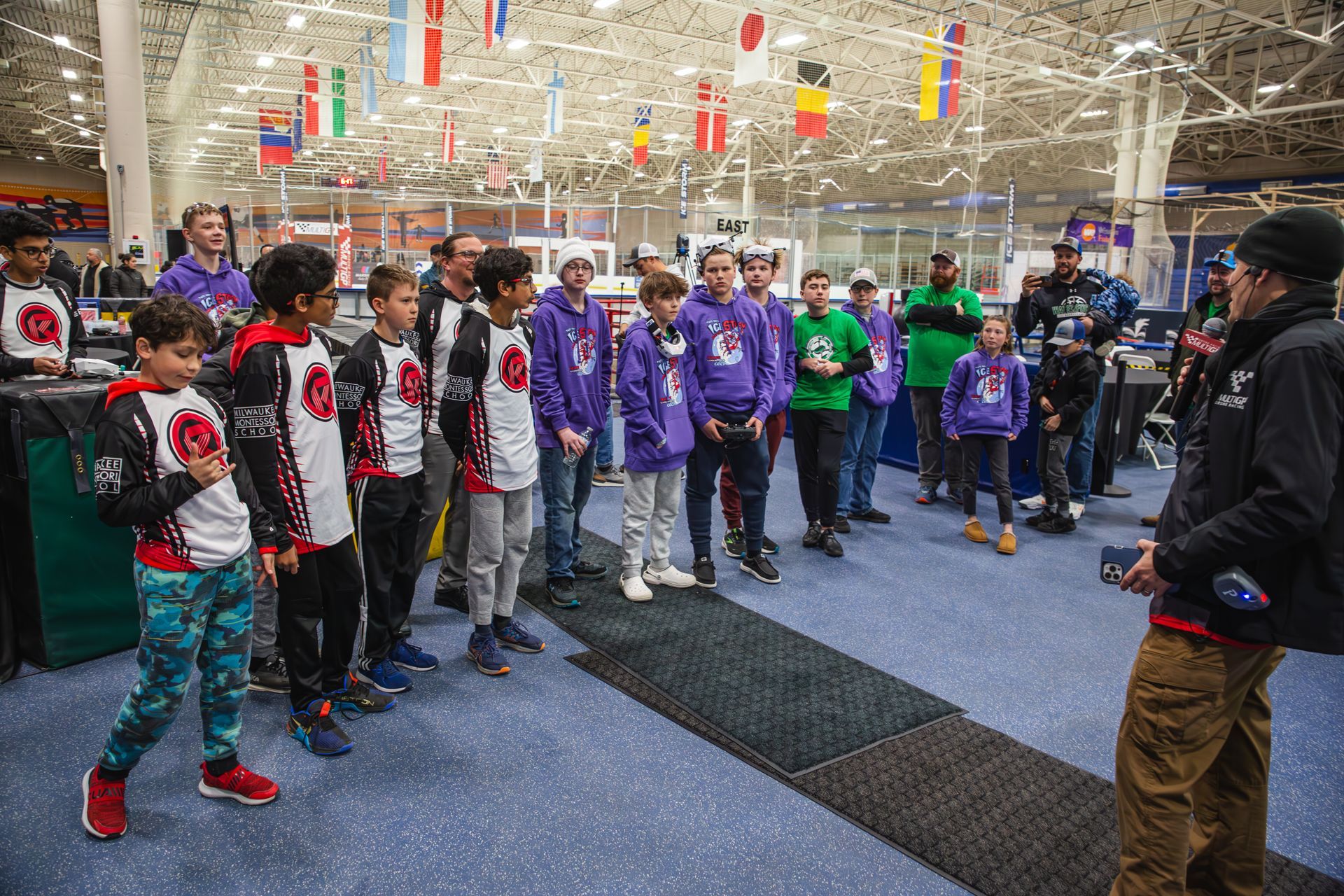
Slide title
Chris Thomas of MultiGP prepping all teams for the races ahead.
Button
Slide title
Team equipment check.
Button
Slide title
One last check on the drones before the race.
Button
Slide title
Watching the race.
Button
As the races unfolded, the tension mounted, with teams battling it out in multiple heats to secure their spot in the finals. With only two teams left standing, the stage was set for a thrilling showdown under the Friday night lights, drawing a crowd of eager parents, student spectators, and a television news crew!

In a nail-biting finale, it was the MMS Team who emerged victorious, clinching the title of champions at the Ice Storm Drone Racing Competition. However, their triumph was hard-earned, with Fox River Middle School proving to be a formidable opponent, pushing them to their limits with every lap. Despite falling short by a razor-thin margin, the resilience and sportsmanship displayed by the Fox River Falcons left no doubt that they'll be back next year, hungrier for victory than ever before.
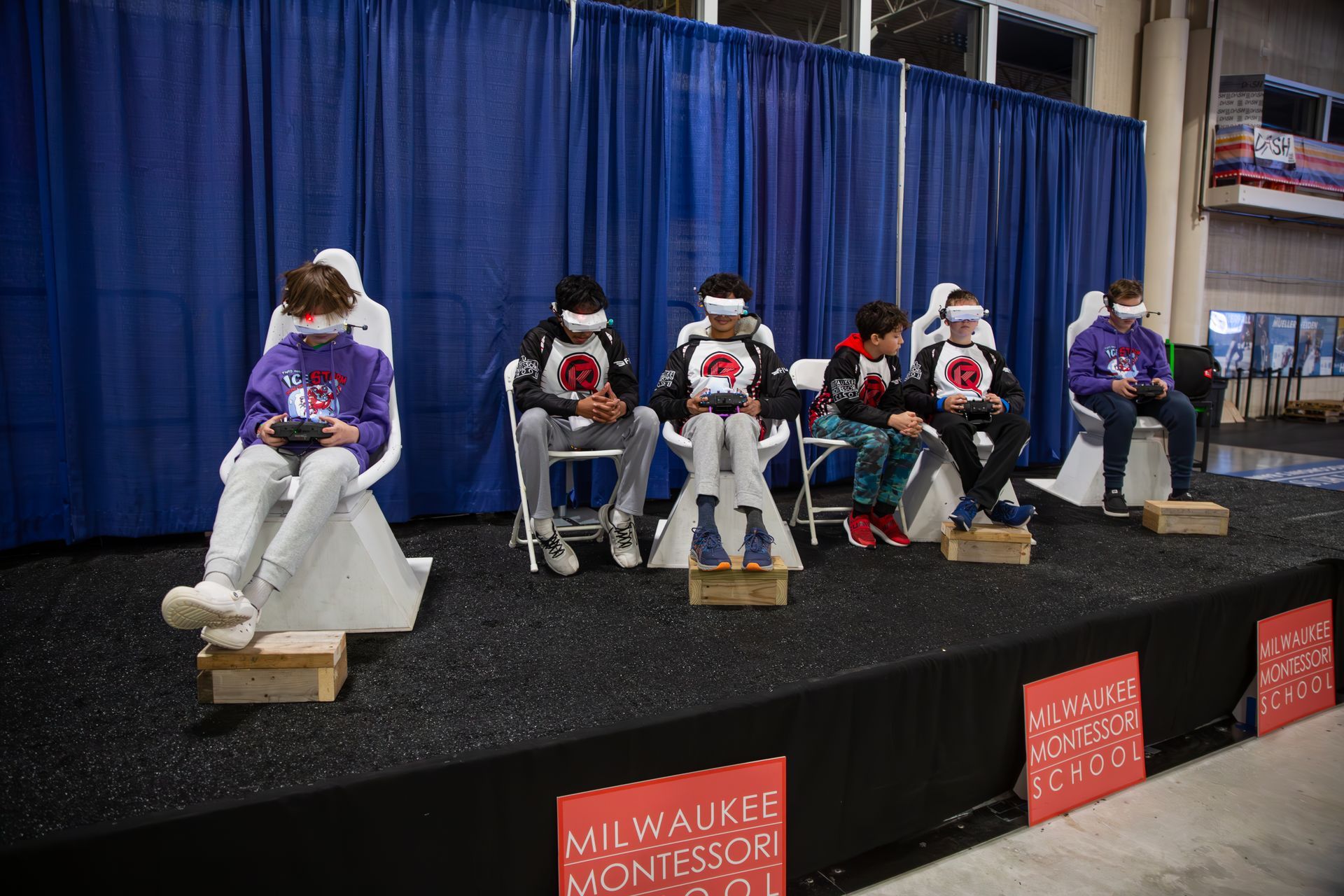
As the dust settled and the adrenaline subsided, it became clear that the legacy of the Ice Storm Drone Racing Competition would endure. Already, whispers of anticipation circulated among the crowd, with promises of even more student teams from other schools eager to join the fray next year. With each passing moment, the anticipation grew, with the promise of a bigger, better, and more exhilarating event for our students on the horizon.
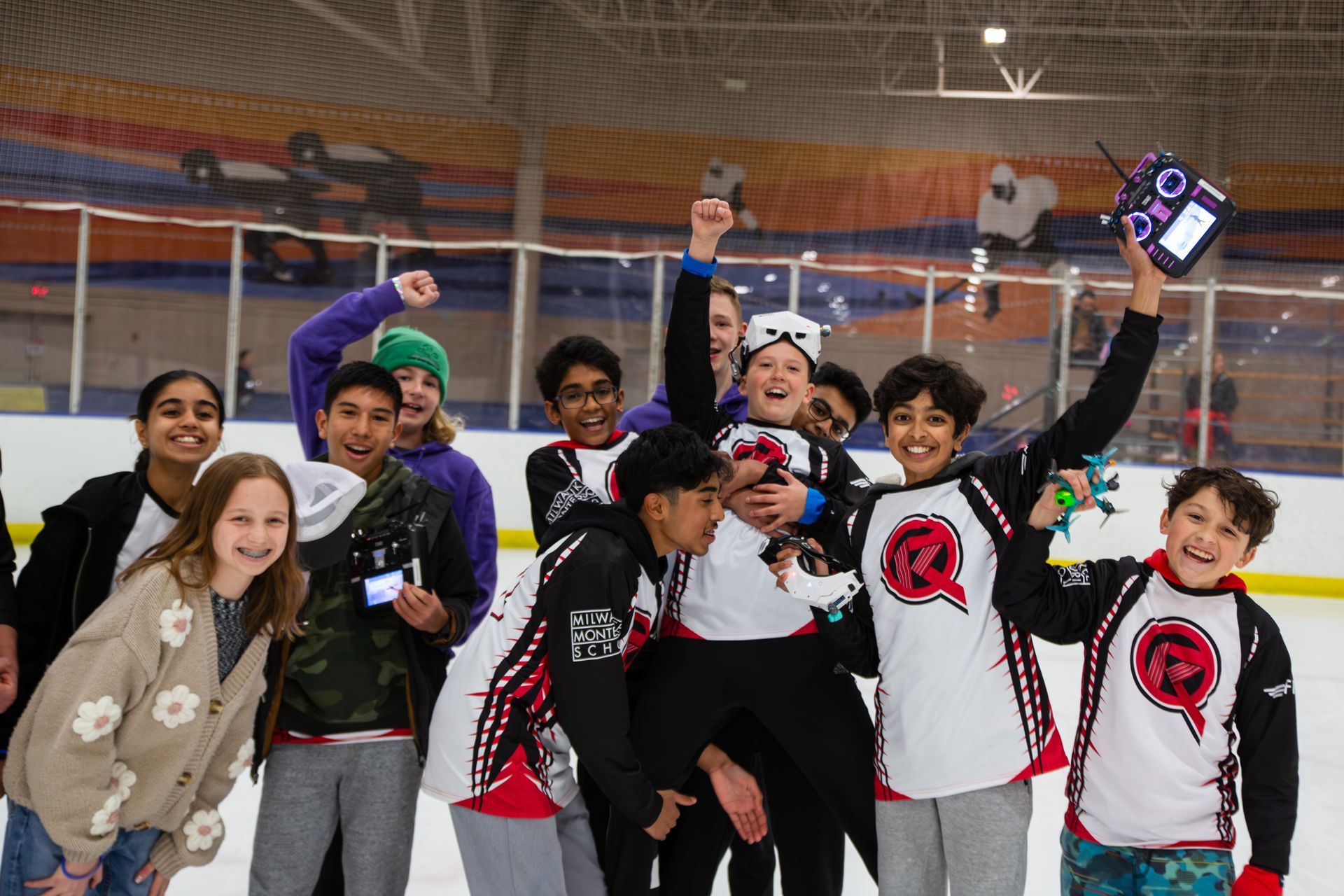
A heartfelt thank you is owed to MultiGP and the professional pilots whose expertise and dedication elevated the competition to unprecedented heights. Their unwavering support and guidance ensured that the event ran seamlessly, leaving a lasting impression on all who attended. Additionally, the countless Wisconsin Charters who lent their support and enthusiasm played an integral role in making the Ice Storm Drone Racing Competition a resounding success.
As we reflect on the thrilling spectacle that unfolded at the Pettit Center, it's clear that the spirit of camaraderie and competition will continue to thrive in the years to come. To all who contributed to the success of this event, especially Greg Sukowaty, our MMS Director of Educational Technology, Karin Groh, Holly Benson and all of the MMS Faculty who helped make this event a success, I extend my deepest gratitude. Without your passion and commitment, none of this would have been possible. Here's to the future of student drone racing and the endless possibilities that lie ahead!

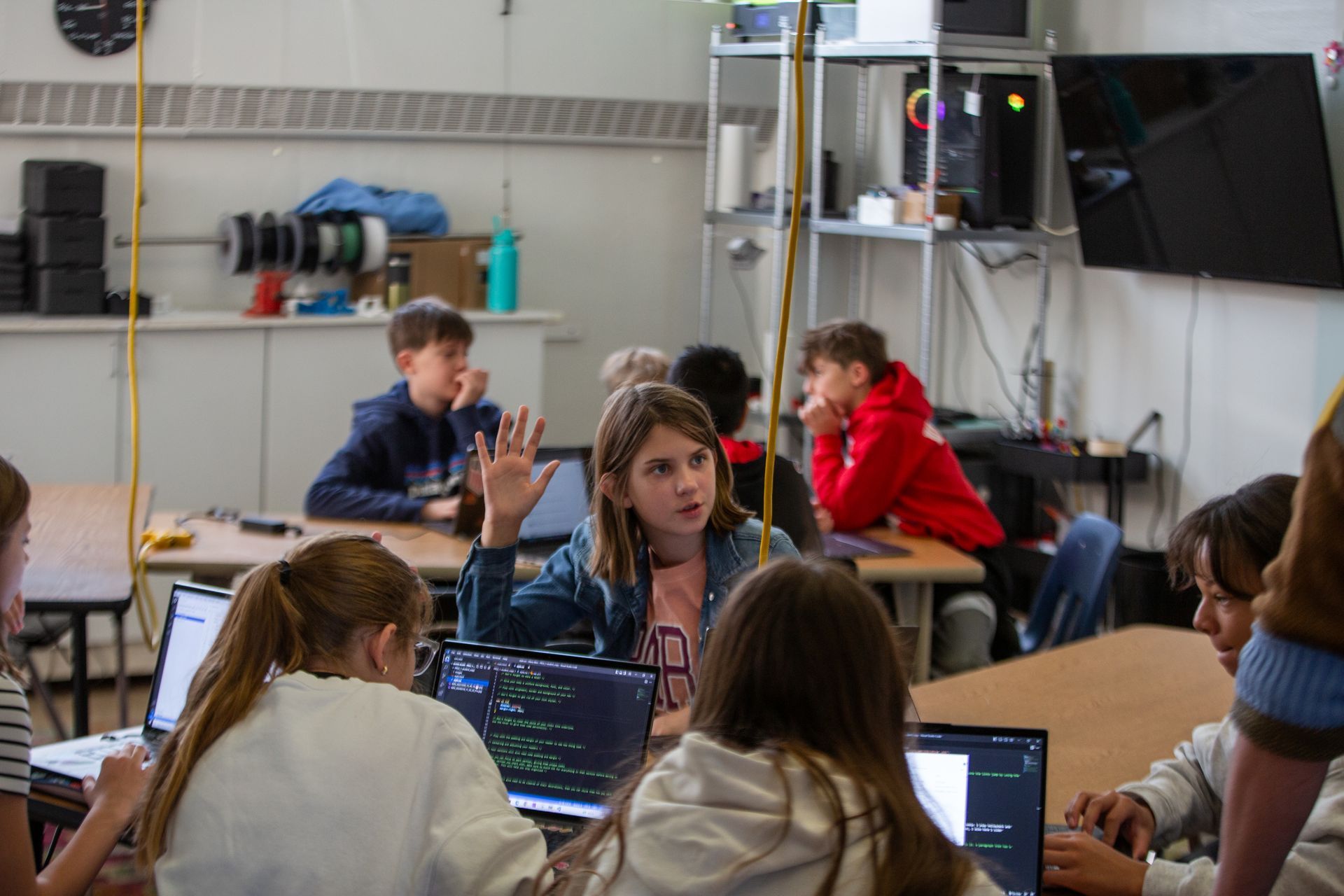

PROGRAMS
CONNECT
Phone (414) 259-0370

